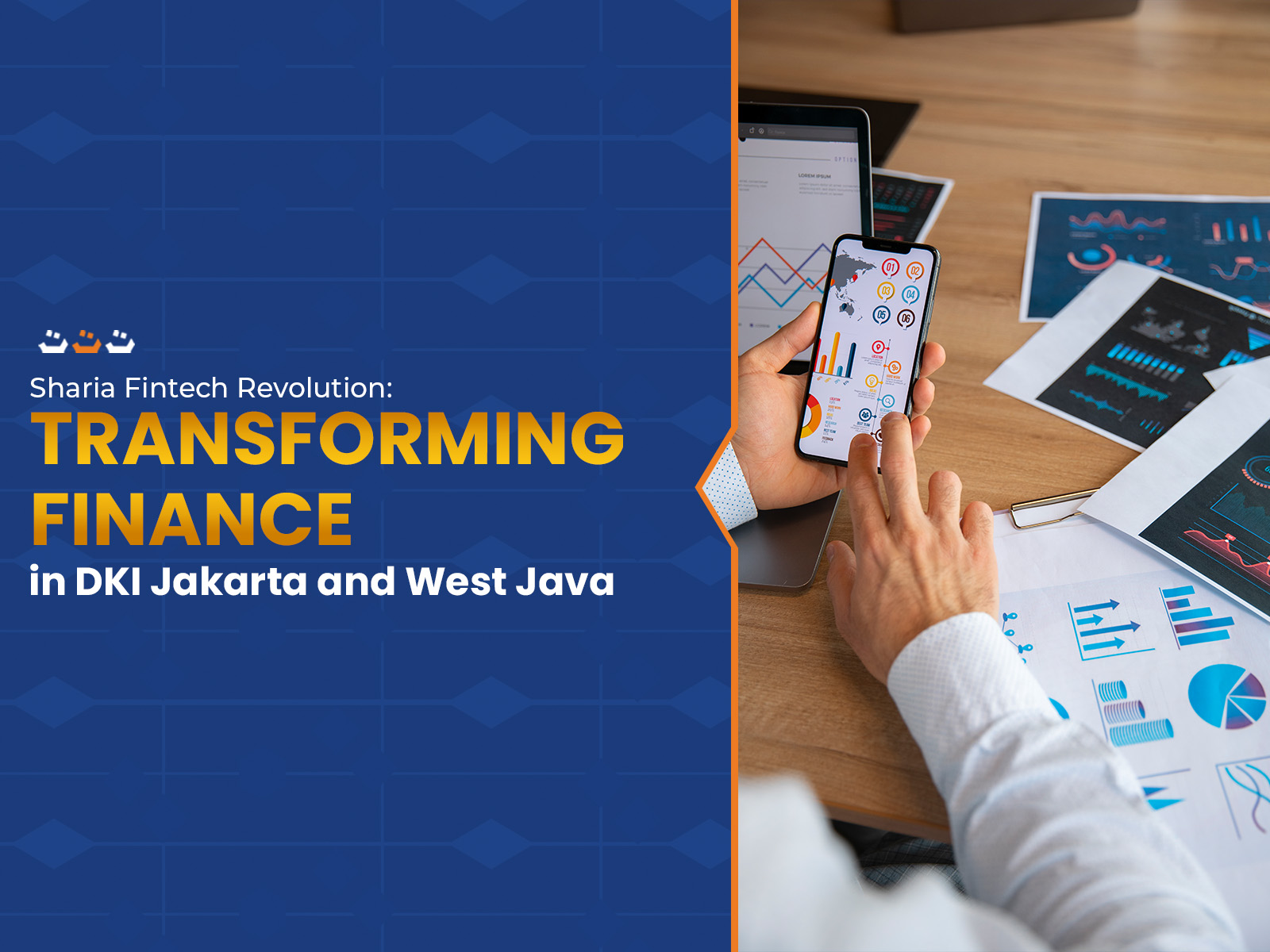Sharia Fintech Adoption: A Tale of Transformation
This study examines the acceptance and usage of Islamic fintech services among user cooperatives in DKI Jakarta and West Java. The researchers sampled users from cooperatives in these regions, utilising an online questionnaire and a non-probability random sampling technique. The questionnaire encompassed basic information and a survey on FinTech services. Structural equation modelling was employed to analyse the data and test the hypotheses, focusing on variables such as Perceived Usefulness (PU), Perceived Ease of Use (PEU), Trust (TRU), Behavioural Intention (BI), Perceived Risk (PR), Government Support (GS), and User Innovation (UI). The results illuminate the following insights:
Perceived Value of Sharia Fintech Services:
Perceived usefulness (PU) and perceived ease of use (PEU) emerge as pivotal determinants of user acceptance. Previous studies have consistently shown that these attributes significantly contribute to adopting new technologies, and this study corroborates these findings. More than 60% of respondents affirmed that Islamic fintech services provide substantial benefits, with over 70% finding these services remarkably user-friendly.
Trust and Perceived Risk:
Trust (TRU) and Perceived Risk (PR) influence Islamic fintech adoption. Users' confidence in the adherence of these services to Sharia principles significantly impacts their acceptance. Encouragingly, 67% of respondents expressed trust in Islamic fintech services, while 75% perceived minimal risk in using these services. Reduced perceived risk is a clear driver of higher adoption rates.
Government Intention and Support:
Behavioural Intention (BI) and Government Support (GS) drive adoption rates. The data indicates that 78% of respondents positively intend to utilise Islamic fintech services in the future. Moreover, a remarkable 83% believe that government support plays a pivotal role in propelling the growth of the Islamic fintech industry. The study underscores the significance of strong government support and positive user intentions in increasing adoption.
User Interface:
An intuitive and user-friendly User Interface (UI) emerges as a crucial factor in adoption. An effective UI can enhance both Perceived Ease of Use and Perceived Usefulness. Encouragingly, 80% of respondents emphasised the importance of a straightforward and easy-to-navigate interface in influencing their decision to embrace these services.
Sharia FinTech and the Road Ahead
Rabiah and Wirdha's study highlights the effectiveness of the TAM in analysing the adoption of Sharia FinTech services within cooperatives. It resonates with previous research emphasising the importance of PU, PEU, TRU, and BI in adopting FinTech services. However, it introduces fresh perspectives by emphasising the significance of PR and its impact on the acceptance of FinTech services. These insights provide valuable guidance for cooperatives and FinTech service providers in devising marketing strategies to enhance the adoption of Sharia FinTech services.
However, Islamic Fintech must confront several challenges to unlock its full potential. Addressing Sharia compliance, regulation, cybersecurity, and bridging the digital divide are paramount to ensure widespread adoption and its role as a substantial contributor to Indonesia's economy. Additionally, the study revealed a deficit of Sharia FinTech literacy in Indonesia, with only a few cooperatives embracing FinTech services. Yet, with the world's largest Muslim population, Indonesia possesses immense potential for the development of Sharia FinTech services. Some notable examples of existing Sharia FinTech services in Indonesia include the Association of Indonesian Neo Cooperatives (ANKI), ALAMI Sharia, Ash Shidiq Jakarta Digital Cooperative, Sahabat Syariah, Amana Fintech, Kitabisa, and others.
A Closer Look: Practical Case Scenarios in Sharia FinTech:
To better understand the opportunities and challenges within Islamic FinTech, let's delve into the operations of major players in Indonesia: Asosiasi Koperasi Neo Indonesia (ANKI), Sahabat Syariah, and Amana Fintech. ANKI's digitisation efforts are modernising the cooperative landscape and promoting financial inclusion, although they must address a digital literacy gap. Sahabat Syariah, a lending platform, is enjoying success but faces regulatory hurdles restricting its growth. Amana Fintech offers many digital services but grapples with data security issues. These platforms can cultivate trust and expand their user base by effectively tackling these challenges and capitalising on opportunities.
With a substantial increase in cooperative turnover and active cooperatives, Islamic FinTech services have the potential to contribute to the Indonesian economy significantly. Moreover, these services can empower individuals and small businesses by pooling resources and providing access to financial services that were previously beyond their reach, thereby fostering business development. However, the industry must overcome challenges such as ensuring Sharia compliance, addressing cybersecurity concerns, and bridging the digital divide to bolster trust and play a pivotal role in the country's economy.
Unlocking the Potential of Sharia FinTech in Indonesia
As Indonesia's financial landscape continues to evolve, Islamic FinTech is a powerful force of change. Its success is tackling the complexities of Sharia compliance, fostering a supportive regulatory environment, fortifying cybersecurity measures, and ensuring equitable access to digital services. The education and promotion of Sharia FinTech literacy are essential to bridge the gap between potential users and these innovative services.
With a growing Muslim population and increasing demand for digital financial solutions, Indonesia is positioning itself to become a global leader in Sharia FinTech. The examples of ANKI, Sahabat Syariah, and Amana Fintech illustrate this transformative industry's opportunities and challenges. Through perseverance, innovation, and collaboration, these platforms can shape the future of finance and elevate the nation's socio-economic well-being.
In conclusion, adopting Sharia FinTech services among cooperative users in DKI Jakarta and West Java is a dynamic journey that offers immense promise. By addressing the intricacies of trust, user interface, government support, and perceived value, Islamic FinTech can genuinely thrive in Indonesia, ultimately contributing significantly to the nation's economic growth and financial inclusion.

